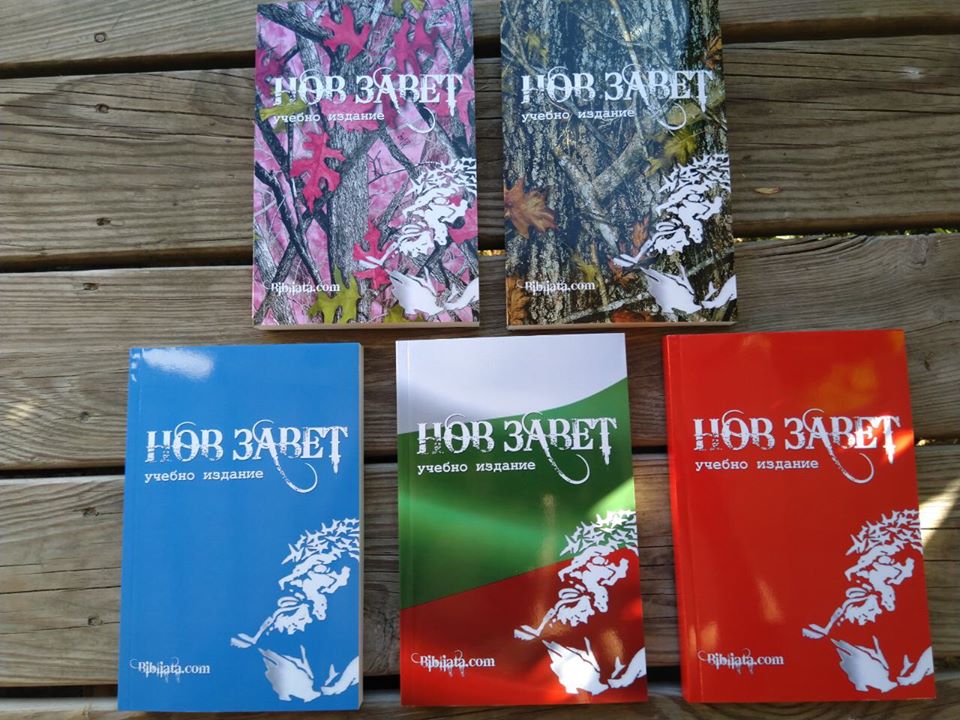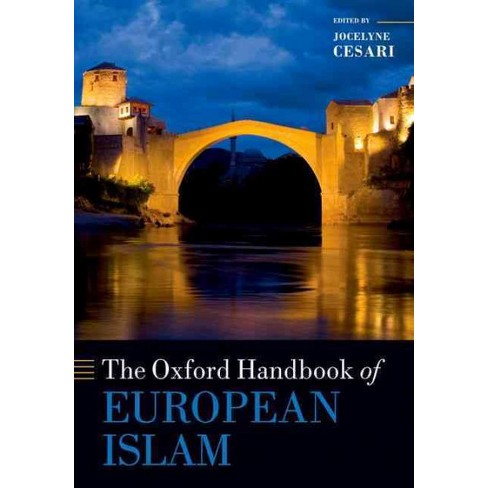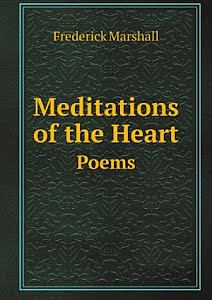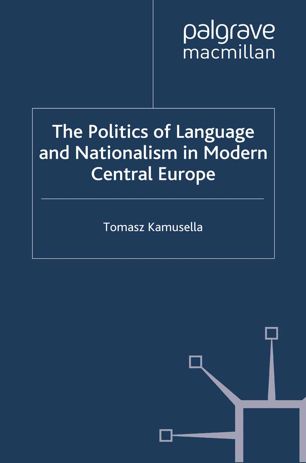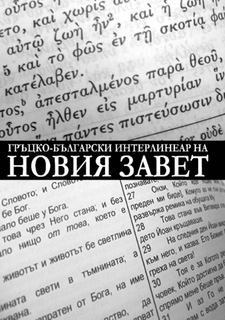5 Bulgarian Study New Testaments Published
We are truly blessed to introduce for the first time the Bulgarian Study New Testament. The text is specifically designed and printed for Bulgarian immigrant churches outside of Bulgaria and specifically for the Goodwin need of Bibles, study guides and leadership literature among the Bulgarian Churches in North America. This first edition contains:
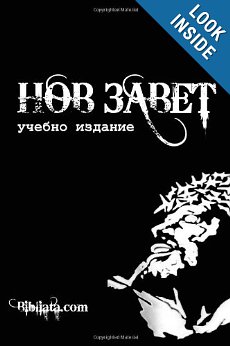 Revised protestant Bible History of the New Testament texts
Revised protestant Bible History of the New Testament texts- The Story of the Bulgarian Bible
- Harmony of the Gospels
- Prologue to each book
- How can I be saved?
- What the Bible says about…
- Holy Spirit in the life of the believer
- Prayer Devotions
- Praise and Worship Lessons
- Role of the Church in the world
- Theology in contrasts
- Names and titles of Jesus Christ
- Messianic Prophecies Fulfilled
- The miracles of Jesus
- The proverbs of the Lord
- Model and use of the Tabernacle
- Maps of Biblical places
- Plan of the Last days and the Book of Revelation
PENTECOSTAL BABEL
PENTECOSTAL BABEL
As we reflect upon Pentecost Sunday, I submit here my recently published article in the preaching journal of Columbia Theological Seminary. I was pleased that this piece was made the lead article in the Pentecost edition of the Journal for Preachers (just ahead of Walter Brueggemann’s contribution, which made me feel pretty good!). The article is also a smattering of one of the chapters of my upcoming theological memoir, which is presently being copy-edited by Cascade Books. I welcome your comments and criticisms!
“NOW, DO NOT GO FROM THIS MEETING AND TALK ABOUT TONGUES, BUT TRY TO GET PEOPLE SAVED!”
WILLIAM SEYMOUR, THE AZUSA STREET MISSION
One of the reasons that I voraciously enjoy the Journal for Preachers is that I am a Pentecostal. I find myself terrifically motivated by the perspectives of this community of mainline Protestant preachers, who seem to so effortlessly move exegetical and theological dirt around the jobsite to uncover treasures I would never otherwise discover. In this collegial spirit, I thought our readers might enjoy a Pentecostal perspective on the Day of Pentecost, particularly the phenomenon that pushes the entire story off the ground: the gift of tongues. In circles where the emphasis of Acts 2 is typically placed on the birthday of the Church, perhaps moving the dirt around the tongue talking, the early morning racket, and the accusations of drunkenness will reveal some hidden gems.
The Sign of Tongues in the Pentecostal Tradition
It is safe to say that the average man on the street, if he has heard of a Pentecostal, associates us with one of our odder habits: what is typically called “speaking in tongues.” We take this phrase from the King James translation of the book of Acts in the New Testament, a translation that was hammered out during Shakespearean times. You might also call the habit, more contemporarily, “speaking in languages.”
Speaking in tongues is what Pentecostals became known for early on, especially at the Azusa Street Revival at the beginning of the twentieth century. Its leader, William Seymour, tried his best to focus people’s attention not toward the phenomenon of tongues, but toward the lifestyle such Spirit-empowerment produced. “If you get angry, or speak evil or backbite, I care not how many tongues you may have, you have not the baptism with the Holy Spirit,” the illiterate Seymour preached.[i] Still, it is hard not to focus on a group of people who spontaneously burst into shouting a bunch of syllables that sound like gibberish.
“We believe in speaking with other tongues as the Spirit gives utterance,” my denomination’s faith statement reads, “and that it is the initial evidence of the baptism in the Holy Ghost.” As if speaking in tongues were not aberrant enough, this statement seriously upped the ante. If you don’t speak in tongues, you haven’t really had a full experience of the Holy Spirit, we declared. The gift of tongues is the entrance requirement into Spirit baptism and the complete Christian life. If you don’t do it, according to our particular tradition, you’re not a bona fide Pentecostal.
Our motives in this effort to encourage the gift of tongues have always been pure, but slapping a bunch of strictures around the activity of the Holy Spirit is tricky business at best, like trying to tame the wind. At worst, we can dress up to play the part of God. Certainly God “does not change like the shifting shadows,” James 1:17 says, but neither is God beholden to formulas. In erring to the latter side, I have seen and heard all kinds of personal stories about well-meaning Pentecostals trying to “help” others receive the gift of tongues, and the stories range from the horrific to the hokey.
Growing up, there were plenty of altar calls to receive the Holy Spirit by way of the “sign” of speaking in tongues (signage is the language for the gift used in Mark 16:17). People often testified of “seeking” the gift for many months (One new convert of our congregation who was in seeking mode remarked, “The Holy Ghost sure is an elusive thing, ain’t He?”). Seekers would crowd the altar, and holy huddles would form around them, swaying back and forth, everyone praying out loud, eight, ten, twelve hands on the seeker’s shoulders and head. At some point after the seeker had been thoroughly leaned on by the group, someone would take the lead. The leader would stand face to face with the seeker, and the oral exam would begin. “Speak out!” “Speak anything that comes to mind!” I have seen people pat the chin of the speaker with the back of their hand up and down, over and over. Judge us if you must, but the Catholics believe that the communion wine transubstantiates into real blood. Are we Pentecostals not also allowed some hocus-pocus?
If there were Holy Ghost blockages that the prayer huddles could not break through, individual attention was warranted. The pros were called in with tactical stents. One friend of mine was taken to a room and given practice words. “You can do it!” he recalls the pro’s encouragement. In my mind the scene looks like an interrogation room in an episode of Law and Order, a hanging light bulb over a metal desk, the pro with a walkie-talkie strapped to his belt to relay any breakthrough. Even with such serious help, my friend never did speak in tongues.
In fact, I know all kinds of people who identify with Pentecostalism but never crossed the tongues threshold. My denomination is still trying to figure out what to do with them. Jesus told Nicodemus in John 3:8 that “the Spirit blows wherever it pleases.” “The Holy Ghost sure is an elusive thing, ain’t he?”
Glossolalia and the Repair of Language
There are all kinds of smart studies on the phenomenon of speaking in tongues, typically called glossolalia in academic circles (from the Greek words glossa – language – and laleo – to speak). The experience of tongues is not particular to Pentecostals, or even to Christians, but there does seem to be a common thread uniting those who participate: Glossolalia is the language of the underclass. In the words of Randall Balmer at Barnard University: “It provides a voice to people who feel they have no voice.”[ii]
I fear that such a definition might be interpreted as Marxist escapism, tongues as an opiate for the poor. I have never thought about tongues as some Christian version ofthe Exorcist, eyes rolling back into the head for a few moments of ecstasy, like a drug hit. Tongues are not the result of some kind of divine possession, which seems to be Paul’s point in 1 Corinthians 14:32 — “The spirits of prophets are subject to the control of prophets.” Instead, at the most elemental level, tongues are about…tongues. Tongues are about language, about words. They beg the question, “Where does language come from and what does it mean to do?”
Even the most secular among us would readily acknowledge that the project of human language is in deep disrepair. The Quaker spiritualist, Richard Foster, contends:
The tongue is our most powerful weapon of manipulation. A frantic stream of words flows from us because we are in a constant process of adjusting our public image. We fear so deeply what we think other people see in us that we talk in order to straighten out their understanding.[iii]
Is not such evidence of the seductive and devalued power of language all around us? Just listen to the droll of the cable news wars, in which language is weaponized to the point where logic and objectivity are chess pieces to be played, ninjas stars to be thrown. And hasn’t the larger church lost the battle of fighting devalued words with more devalued words that are theological in nature? “Christian language needs to be redeemed,” Marcus Borg argues.[iv] The Church has not been able to save us from the word vomit soup we now swim in. We are all growing increasingly illiterate, shouting words back and forth that have little meaning and less value. All that matters is how sharply we can carve out the edges of our words.
Historically, Christian thought has been on the forefront of deconstructing the power of words to their constituent elements. There is plenty in the Bible about the potency of language (my mother was fond of quoting James 1:19 in our home, “Be quick to listen and slow to speak”) and this tradition has grown throughout the centuries. From the first monk, Anthony the Great in the third century, Christian monks attacked word vomit with the powerful weapon of silence. Thomas Merton, the famous trappist monk of the last century, renowned for his vows of silence, considered words to be the building blocks of the “false self” that we project onto others for our own perceived good.[v] His corrective: create silence. Soren Kierkegaard, a Danish theologian, wrote well over a century ago, ““If I were a doctor and could prescribe just one remedy for all the ills of the modern world, I would prescribe silence.”[vi] Scores of similarly beautiful quotations on the power of silence from a thousand Christian mystics fill the literature of church history.
Pentecostals are a part of this Christian trajectory, but have attacked the same problem of word vomit from a dramatically different angle. You might say that the monastic tradition fought word inflation by raising the interest rates on language. The fewer words in play, the better their value. We Pentecostals did not follow this approach. As an underclass people, perhaps we saw silence as, in the words of Wendell Berry, “the distinguishing characteristic of absolute despair.”[vii] So we just decided to receive a whole new language altogether, and by doing so, to transcend despair.
The Post-Babel Language of God
In Acts 2, the followers of Jesus are waiting for the fulfillment of the promise of 1:5: “For John baptized with water but in a few days you will be baptized with the Holy Spirit.” And then, like a sandstorm, it hit. “All of them were filled with the Holy Spirit and began to speak in other tongues as the Spirit enabled them” (2:4). But that is only where the true story begins. It is the response of the onlookers to the phenomenon of speaking in tongues that constitutes the real meat of the narrative of Acts 2.
Now there were staying in Jerusalem God-fearing Jews from every nation under heaven. When they heard this sound, a crowd came together in bewilderment, because each one heard their own language being spoken. Utterly amazed, they asked: “Aren’t all these who are speaking Galileans? Then how is it that each of us hears them in our native language? Parthians, Medes and Elamites; residents of Mesopotamia, Judea and Cappadocia, Pontus and Asia, Phrygia and Pamphylia, Egypt and the parts of Libya near Cyrene; visitors from Rome (both Jews and converts to Judaism); Cretans and Arabs—we hear them declaring the wonders of God in our own tongues!” Amazed and perplexed, they asked one another, “What does this mean?” (2:5-12)
Languages old and new, spewing forth from the poor white trash of Galilee, now suddenly linguists. Indeed, what does such an event mean?
It is hard to doubt that a very specific Old Testament text stands behind Acts 2, backlighting its meaning. It was way back in Genesis 11 where the nations highlighted in Acts 2 first endured their birth. There, the story of the Tower of Babel adds two great brush strokes to the burgeoning picture of YHWH in the early days of humanity, a God who is ferociously particular. Those two new particularities painted in Genesis 11 are simply that (1) God doesn’t care much for urban living and (2) really disdains dictatorial regimes with their forced homogeneity. “Come, let us build ourselves a city, with a tower that reaches to the heavens, so that we may make a name for ourselves,” the whiz kids of the Mesopotamian valley devised in Genesis 11:4. Armed with their Apple computers, their new brick-making technology and cool, horn-rimmed eyeglasses, they sought to remake history.
But God is not enthused.
“Come, let us go down and confuse their language so they will not understand each other,” God decides after convening a council of Himself. “That is why it was called Babel – because there the Lord confused the language of the whole world,” scattering them “across the face of the whole earth.” In the Old Testament tradition, God’s response to Babel is where languages (other than Hebrew?) began. The project of multiple languages/tongues was meant to prevent human oppression at the Tower of Babel.
Of course, humanity found a way to derail that project of multiple languages as well. The Egyptian Empire would soon rise, forcing everything it could force on those who did not speak Egyptian. The Babylonians would give way to the Persians would give way to Alexander the Great would give way to the Romans. One Tower of Babel was replaced with thousands more ethnically specific. By the time of Acts 2, there are too many towers to count; thousands of ethnic groups, attempting to build bigger towers, to control the “foreigners” around them. And then the Holy Ghost descends, and in one fell swoop, there are no more foreigners. A bunch of tongue-talking, illiterate Galileans turned all the towers of Babel to rubble.
At the Day of Pentecost, the crisis whereby human languages separated the peoples of the earth, keeping them at odds with one another, is suddenly eradicated. Oppression gives way to the birth pangs of unity. “We hear them declaring the wonders of God in our own tongues!” the astonished nations of the world gather to proclaim. Languages that were once unintelligible are rendered intelligible. Confusion gives way to understanding. “What does this mean?”
Every Christian tradition has to answer this question for themselves, of course. There were some in the Jerusalem crowd that simply assumed the disciples had been binging on bloody maries and mimosas, what with all their round-the-clock celebration of Jesus’ supposed resurrection. We tongue-talkers are still considered imbalanced, if not loony.
But for Pentecostals, the answer to the question of the crowds still rings out. “What does this mean?” It means in part that God has visited us to change lives and to change history, to forge new creation from the old. This new creation, wrought by the Holy Spirit, requires not silence, but declaration. This new creation requires wonder and bewilderment. Most of all, this new creation requires new tongues — the only intelligible language in God’s new world. Ralph Waldo Emerson said that language is the archive of history.[viii] God’s new history operates on new words. Tongues are God’s grand finale of holiness; the final sanctification of language itself so that all things might be made new.
T.S. Eliot wrote about his frustration of “Trying to learn to use words, and every attempt is a wholly new start, and a different kind of failure.”[ix] If part of the meaning of the Tower of Babel is that no particular group of people has the corner on the word market, I am certainly not insinuating that Pentecostals have a corner on the tongues market. Such a claim would be transforming tongues to propaganda. I am sure there are abuses and forgeries. Rainer Maria Rilke told a young poet, “Even the best err in words when they are meant to mean most delicate and almost inexpressible things.”[x]
Even so, what I mean to say is that rather than capitulating to word vomit or silence, there is something beautiful about offering the very elements of language as worship unto the God of all language. Our babble somehow levels the towers of Babel all over again. Each Sunday, is this not what we preachers do?
[i] Aaron T. Friesen, Norming the Abnormal: The Development and Function of the Doctrine of Initial Evidence in Classical Pentecostalism (Eugene, OR: Pickwick, 2013), pg. 58.
[ii] Miller, “BeliefWatch: Spirit Filled.” http://www.newsweek.com/beliefwatch-spirit-filled-107031, para. 4.
[iii] Richard Foster, Celebration of Discipline: The Path to Spiritual Growth (New York: Harper Collins, 1988), pg. 101.
[iv] Marcus J. Borg, Speaking Christian: Why Christian Words Have Lost Their Meaning and Power – and How they can be Restored (New York: Harper One, 2011), pg. 2.
[v] Fred Herron, No Abiding Place: Thomas Merton and the Search for God (Lanham, NY: University Press of America, 2005), pg. 55.
[vi] Rabindra N. Kanungo and Manual Mendonca, Ethical Dimensions of Leadership(Thousand Oaks, CA: Sage, 1996), pg. 101.
[vii] Wendell Berry, What Are People For?: Essays (Berkeley, CA: Counterpoint, 2010), pg. 59.
[viii] Ralph Waldo Emerson, The Essays of Ralph Waldo Emerson (Cambridge: Harvard, 1997), pg. 13.
[ix] T.S. Elliot, Four Quartets (Orlando: Harcourt, 1943), pg. 30.
[x] Rainer Maria Rilke, Letters to a Young Poet (New York: W.W. Norton, 1934), pg. 26.
Cup & Cross featured in the Oxford Handbook of European Religions (vol. 3)
Cup & Cross featured in Meditations of the Heart By F. Marshall
Cup & Cross featured in The Politics of Language and Nationalism in Modern Central Europe
Orthodox and Wesleyan Spirituality Praxis
Dony K. Donev, D. Min.
“I sit down alone: only God is here; in His presence
I open and read this book to find the way to heaven”
– John Wesley
Our search for the theological and practical connection between Pentecostalism and Eastern Orthodoxy continues with yet another publication by St. Vladimir’s Press titled, Orthodox and Wesleyan Scriptural Understanding and Practice. The book represents an ongoing dialogue between the Orthodox and Wesleyan confessions and it emphasizes how theologians from both sides are attempting to discover commonalities in theology and praxis. To come together, not so much as theologians and thinkers, but as practical doers motivated by the proper interpretation of Scripture. As observed from the title, as well as through the text, these similarities are not necessarily in theological convictions, but in the proceeding Biblical approach toward interpretation of Scripture.
Orthodox and Wesleyan Scriptural Understanding and Practice is a compilation of essays from the Second Consultation on Orthodox and Wesleyan Spirituality under the editorship in 2000 of S.T. Kimbrough, Jr., who contributed the chapter on Chares Wesley’s’ Lyrical Commentary on the Holy Scriptures. I must issue the caution that the book is not an easy read, at least not for the reader who intends to understand it. But it is by no means a book to be easily passed by Pentecostal scholars searching for the Biblical roots of Pentecostalism within the Eastern Orthodoxy.
The book begins with an interesting observation of the exegesis of the Cappadocian Fathers by John A. McGuckin, and continues with an article on the spiritual cognition of my personal favorite, Simeon the New Theologian by Theodore Stylianopoulos. Although the discussion on Gregory the Theologian, Basil of Caesarea and Gregory of Nyssa was thoughtful and presented in an interesting manner, the essay on St. Simeon struck me as well structured, but a bit shallow.
An interesting approach was taken in Tamara Grdzelidze’s essay where she presented an orthodox perspective of the Wesleyan position on authority of scriptural interpretation. The essay had a very strong exposition in regard to the Wesleyan understanding of the importance of Scripture in Christian living. However, the latter part, which dealt with the influence of tradition, was not investigated to its full capacity, which left the text (perhaps on purpose) open to multiple interpretations. Nevertheless, this issue was resolved later in the book by Ted Campbell that dealt with the subject from the Wesleyan perspective.
A central theme throughout the book was the comparison of prayers and song lyrics from both camps. Although I am no musical expert, I must agree with the authors, that theology within music has played an important role in both Orthodox and Wesleyan traditions, as it continues to do so in the everyday spiritual experience of the Pentecostal believer. This rather practical approach seemed to be the heart of the discussion where both sides could agree.Finally, the role of the Holy Spirit is viewed as central for the reading, understanding and practicing of Scripture in both the Orthodox and Wesleyan traditions. For the Pentecostal reader, it may be easy to accept this presumption as similar to the Pentecostal experience, yet the book describes it in terms which will be somewhat foreign to many Pentecostals. Although the said similarities between the interpretations of Scripture may be self explanatory for the western Pentecostal reader, they may be easily disregarded as unimportant by people who practice theology and ministry in an Eastern European context due to the ever-present tension between the Orthodox and Protestant denominations. But even if the Pentecostal scholar gathers nothing else from this book, he/she must remember this one thing: The time has come for a formal Orthodox-Pentecostal dialogue, like the one which the World Council of Churches has been trying to put together since 1991.
ALL BOOKS CHRISTMAS SALE
Since 2011, we have authored over two dozen books related to our ministry and mission work in Eastern Europe. As several of the prints are now almost exhausted and second/third editions and several new titles are under way, we are releasing all currently available editions in a Christmas sale through the month of December. All titles are available at up to 30% off and Amazon offers free shipping and extra savings for bundle purchases.
Labor Day Books Sale
Since 2011, we have authored over two dozen books related to our ministry and mission work in Eastern Europe. As several of the prints are now almost exhausted and second/third editions and several new titles are under way, we are releasing all currently available editions in a Labor Day sale. All titles are available at up to 30% off and Amazon offers free shipping and extra savings for bundle purchases.
ALL Bulgarian Cookbooks on Kindle
Cooking Traditions of Bulgaria, Second Edition (now on Kindle)
Bulgarian cuisine is distinct, yet eclectic at the same time with Mediterranean influence and flavors of its surrounding countries. Bulgaria borders the Black Sea, between Romania and Turkey. Greece is also a neighbor, along with Serbia and Macedonia to the west. This cookbook features 50 personal, but authentic recipes in…
Ancient Recipes of Bulgaria now for Kindle
Ancient Recipes of Bulgaria, Second Edition By Evdokia Krusteva This cookbook features nearly two dozen truly ancient recipes of Bulgarian cooking. Some of these dishes are distant relatives to ones found in ancient Roman manuscripts believed to have been compiled in the late 4th or early 5th century AD. Others are among those…
European Delights: A Sweet Journey Through Europe (now on Kindle)
Cakes, cookies, custards, puddings, candies, fried dough, pies and pastries. From the unconventional, recipes of Albanian Walnut Lemon Cake and Lithuanian Poppy Seed Cookies to the classic Tiramisu and Macaroon recipes, this cookbook takes your taste buds on a sweet journey throughout Europe. Desserts have come a long way since…
Ancient Recipes of Bulgaria (now on Kindle)
This cookbook features nearly two dozen truly ancient recipes of Bulgarian cooking. Some of these dishes are distant relatives to ones found in ancient Roman manuscripts believed to have been compiled in the late 4th or early 5th century AD. Others are among those far before the time of Christ….
Cooking Traditions of Bulgaria (now on Kindle)
Now also on Amazon’s Kindle Store This cookbook features authentic recipes in attempts to further the tradition of keeping alive century old recipes of Bulgarian cuisine. Here you can learn how to make dishes from moussaka to baklava and others in between. The variety of tastes of authentic Bulgarian foods…
Ancient Recipes of Bulgaria, Second Edition
Ancient Recipes of Bulgaria, Second Edition By Evdokia Krusteva This cookbook features nearly two dozen truly ancient recipes of Bulgarian cooking. Some of these dishes are distant relatives to ones found in ancient Roman manuscripts believed to have been compiled in the late 4th or early 5th century AD. Others are among those…
Greek-Bulgarian Interlinear of the New Testament now on Amazon
Greek-Bulgarian Interlinear of the New Testament is now on Amazon.com
After twenty some years in Bible translation and a decade long work on this current edition, we are happy to announce that on the 500th anniversary of the Protestant Reformation, our Greek-Bulgarian Interlinear of the New Testament will be presented in Bulgaria’s capital Sofia on All Saints Day 2017. The Greek Bulgarian Interlinear of the New Testament proposes the following solutions to the translation of the Bible in Bulgarian:
- A non-received text – Textus Haud Receptus
- Critical Edition of the Greek New Testament alike Revised Textus Receptus, Tischendorf, Westcott and Hort, von Soden, Nestle-Aland, UBS and SBL GNT
- Literal translation from Greek made word for word without dynamic equivalents
- Linguistic paradigm for repetitive parallel permutation structures in the Greek-Bulgarian translation alike form criticism of the Bible
- Analytical Greek New Testament with complete morphology of the words


